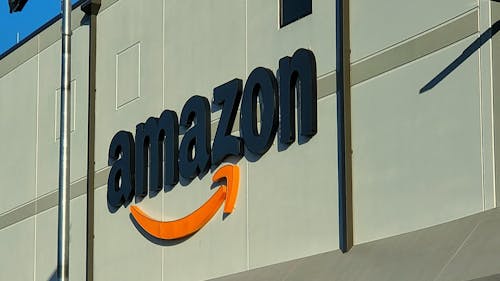U. expert, student share thoughts on goverment's antitrust lawsuit against Amazon

Last month, the Federal Trade Commission (FTC) and 17 state attorney generals filed an antitrust lawsuit against Amazon, alleging that the e-commerce company has illegally perpetuated its monopoly power and suppressed competition, according to a press release.
Antitrust laws in the U.S. prohibit monopolies in most industries, which occurs when a single company uses its dominant market position to exclude competitors or uses predatory business practices harmful to consumers.
The FTC claims that Amazon has raised prices for customers and costs for third-party sellers through two primary ways: discouraging third-party sellers from selling at a lower price on other online marketplaces and pressuring sellers to use Amazon's Prime-branded fulfillment services to succeed on its platform.
"This lawsuit is fundamentally about protecting free and fair competition," Lina Khan, chairperson of the FTC, said in an interview with CNBC Television. "Sellers (now) pay 1 out of every 2 dollars to Amazon, so this is effectively a 50 percent tax that businesses pay to Amazon to reach shoppers. That, in turn, inflates prices for consumers … not just on Amazon's own site but actually across the internet."
Michael Carrier, a distinguished professor at Rutgers Law School and co-director of the Rutgers Institute for Information Policy and Law, said that Amazon would argue that the FTC is improperly defining the market it operates within and emphasize that consumers value the traditionally low prices and vast product selection on Amazon.
"For the past several decades, consumer welfare has been the focus in the courts," he said. "Amazon will claim that consumers like its services. Prime, for example, delivers goods very quickly. The effect of a company's actions on third-party sellers hasn't been as central, but the FTC will try to make that a key (point) in this case."
Carrier said that companies often implement real-time changes in anticipation of an antitrust lawsuit — though these changes are generally not substantial enough to impact the case. For example, Amazon recently integrated its Prime delivery services on competing e-commerce platforms, such as Shopify, to benefit consumers.
Additionally, he said that while past criticism of Big Tech companies had support from both major political parties, this FTC action has not been positively received on a bipartisan basis. Earlier this year, the FTC defended its recent high-profile court losses at the Republican-led House Judiciary Committee.
Regarding concerns over regulatory effects on innovation, Carrier said that antitrust laws can help innovation and do not intend to solely scrutinize large companies but rather evaluate whether a company's business practices hurt consumers.
"Antitrust is hot. Competition is central to the U.S. economy and to all of our lives," he said. "We benefit from low prices, good services and innovation. Is Amazon providing all of that? Or is it hurting us? … And given how central Amazon is to all of our lives, it's worth paying attention to this case."
Anthony Zhang, a Rutgers Business School junior, said that he first learned about the antitrust case against Amazon from a class assignment and approached the arguments being made from a middle-ground perspective.
"As a finance student, I kind of understand why the corporation would try to maximize its profits. (Amazon) has a huge market share," he said. "But from the side of the consumer … these items are getting marked up, I'd speculate 20, 30, maybe more percent, just because Amazon can. So from that angle, it's completely unacceptable."
Zhang said that he believes Rutgers students should be aware of the lawsuit and its potential ramifications since students on campus rely more on ordering products from Amazon and other large e-commerce companies.
"I do think it's important for students to know about (this case), to have an opinion, whether they agree with me or not," he said. "Because this is something that's going to affect their day-to-day (lives)."



